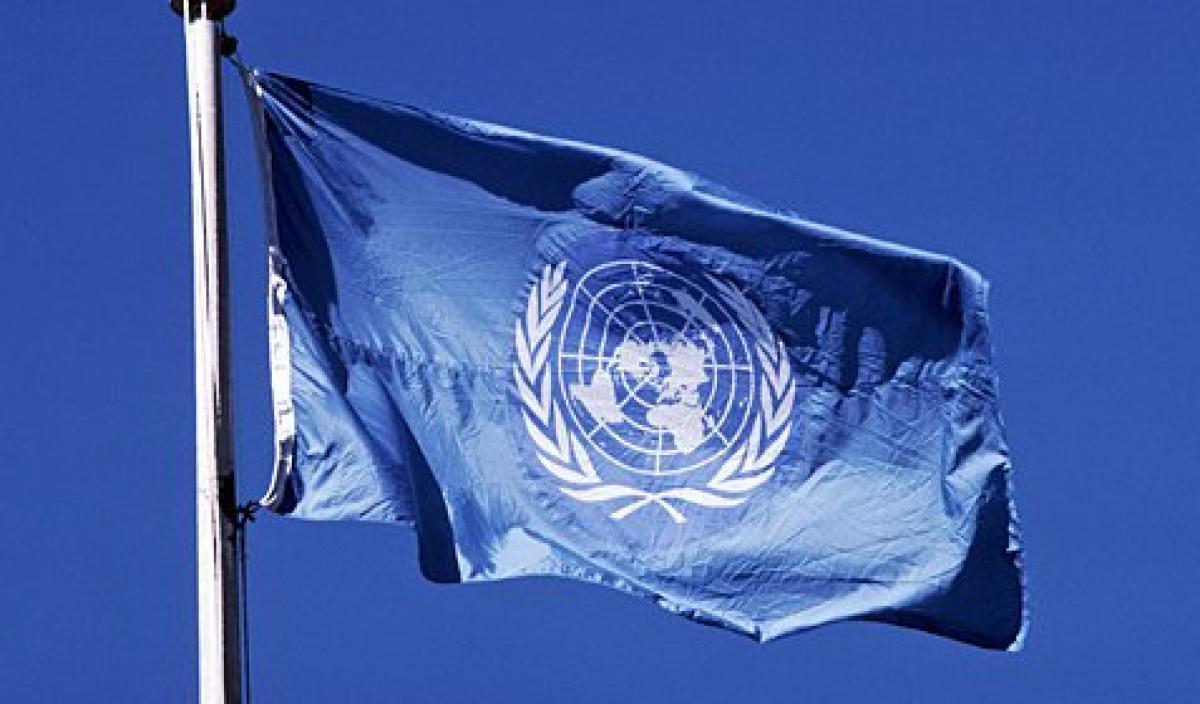Live
- GMR Airports Unveils AI-Powered Digital Twin Platform to Transform Airport Operations
- India poised to become leading maritime player: PM Modi
- Top Causes of Kidney Stones and How to Recognize Silent Symptoms
- India’s renewable energy capacity logs 14.2 pc growth at 213.7 GW
- Winter Session of Odisha Assembly adjourned sine die
- Biden calls Trump's tariff approach 'major mistake'
- After Drama Over Eknath Shinde’s Chief Minister Race, Maharashtra Cabinet Formation Faces New Tensions
- Egyptian FM, Blinken discuss recent developments in Syria
- Iran's supreme leader says Syria's developments result of US-Israeli 'plot'
- Elon Musk to Purchase $100 Million Luxury Mansion Next to Donald Trump's Mar-a-Lago, Report Reveals
Just In

x
Highlights
Universality of human rights is not the same as uniformity of values and the UN should consider the regional, cultural and religious backgrounds to hold dialogues with member states, India told the General Assembly Monday.
Universality of human rights is not the same as uniformity of values and the UN should consider the regional, cultural and religious backgrounds to hold dialogues with member states, India told the General Assembly Monday.
Speaking at a discussion of the report of the Human Rights Council, India's Deputy Permanent Representative Bhagwant Singh Bishnoi sought to put the focus on the right to development as a component of human rights.
"The Council must ensure that the indivisibility, inter-relatedness and interdependence of all human rights, including the right to development must be treated in a fair and equal manner," he said.
Bishnoi stressed the need for "constructive international dialogue" to realise the human rights of all.
"While the universality of rights should not be construed as uniformity of values and systems, the Council must bear in mind the significance of national and regional particularities and various historical, cultural and religious backgrounds in its constructive dialogues with the Member States," he added.
In recent times the UN has come into conflict with deeply held religious beliefs and cultural values of some countries as it seeks to expand the ambit of human rights, especially in the area of gay and transgender rights, even as many basic elements of human rights continue to be violated around the world.
All Islamic nations and several other countries with conservative social values have mounted unsuccessful attempts to block these efforts.
In September last year Islamic nations and many African countries voted against a Human Rights Council resolution on combating discrimination against gays and transgender people. India abstained from voting on the resolution, which was passed by the Council.
India voted for a General Assembly resolution introduced by Russia in March that opposed giving spousal benefits to same sex couples working for the UN. Islamic countries and many other conservative countries also backed the resolution, which was defeated.
About the role of the Council, to which India was re-elected last year, Bishnoi said, "We need to retain its universality and further improve its efficiency and impact by rationalizing recommendations and avoid using it for imposing specific thematic issues that are yet to acquire universal acceptance."
The annual report of the United Nations High Commissioner for Human Rights issued in May but was not among the reports conidered Monday, noted the progress made by India on rights of transgender people. "The Supreme Court of India affirmed the right of transgender persons to determine their own gender, and called upon the government to ensure equal rights for transgender persons, including in access to health care, employment and education," the report said.
Emphsasising the right to development as a human right, Bishnoi said, "With the Government of India's motto 'sabkasaath, sabkavikas,' meaning 'together with all and development for all,' the foremost priority is to ensure rapid, sustainable and inclusive development to achieve full realization of all human rights for all its citizens, with equality at its core. Our new policies and programmes are rooted in human rights standards and lay special emphasis on the poor and marginalized, including women and children."
More On

Next Story
More Stories
ADVERTISEMENT
© 2024 Hyderabad Media House Limited/The Hans India. All rights reserved. Powered by hocalwire.com







